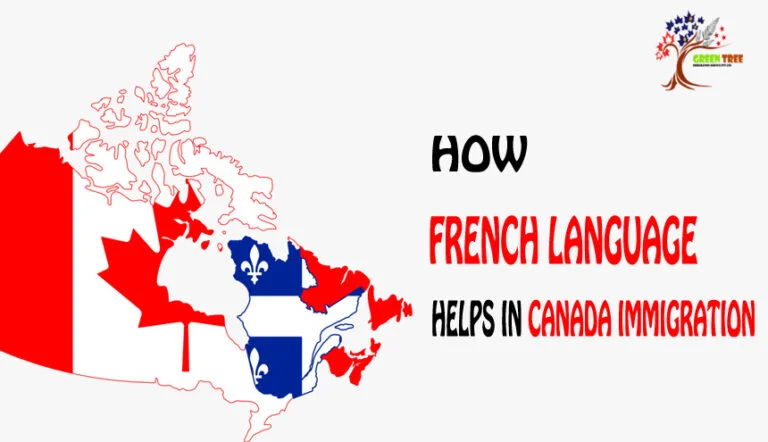Canada has French and English as its official language though 70%of the population speaks English and around 30% of its population speaks french. Province such as Quebec predominantly speaks French and the other nine provinces have English as their official language. If you are an immigration aspirant to Canada. In this blog, you can get a clear idea of how the French help in Canada’s immigration programs.
Advantages or Benefits of learning language French:
- French is one of the official languages of the parliament, court system, and Provincial government activities. All the official government orders are provided both in french and English.
- If you are proficient in french you can travel across Canada without hesitation
- One of the major advantages of learning French is that you can get Job If you are proficient in the bilingual language, you can also choose between jobs that are available only in English or only in French.
- Most multinational companies preferred candidates who can efficient in both languages for the benefit of the company to reach more people for their company growth
- If you speak both French and English, the Canadian Government provides an $800 bilingual bonus as a stipend.
- There are government-funded classes for the newcomers entering Canada such as program french as the second language (FSL) and language instructions fur newcomers to Canada to improve their language proficiency.
How french help in the Canadian immigration program
Canada Language eligibility test conducts both French and English language eligibility tests to enter their country. To immigrate to Canada under the immigration program language proficiency test is mandatory,
- For 67 points immigration: Most of the Express Entry applicants give English as their first language. French ability, at the required level, can fetch a maximum of 4 points.
- For CRS calculation: A maximum of 24 points can be claimed under the CRS for the second official language.
- Up to 50 CRS points can be secured as additional points in the French language.
- Province such as Ontario, Nova Scotia, New Brunswick French-speaking applicants. Ontario province targets French-speaking applicants Skilled Worker Stream.
Aso read:Language requirements for Skilled Immigrants to Canada for Express Entry
Does Canada Study program need french
You do not need to speak French if you do not plan to study in French. However, all of Quebec’s universities teach in French, except:
- McGill University (Montreal)
- Concordia University (Montreal)
- Bishop’s University (Sherbrooke)
There are a few schools that teach in French, Outside the Quebec
- University of Moncton (New Brunswick)
- The University of Saint-Anne (Nova Scotia)
Will French Language Helps in Finding Job:
One of the main benefits of bilingual language knowing french and English can increase job opportunities.
- A study published in 2014 by Canadian Parents for French showed that 81 percent of supervisors considered bilingual employees an asset to the organization.
- Multinational companies often seek employees who are fluent in more than one language and prioritize candidates who demonstrate such proficiency. You will have greater mobility within companies that have branches across Canada (and around the world).
- You will be able to broaden your job search to any province, giving yourself a better chance to more quickly find a satisfactory position.
- Since the year 2000, the federal public service (which values bilingualism) has had to recruit between 12,000 and 15,000 employees to replace retiring public servants.
In Canada knowing french can benefit in more ways such as immigration, job, and study. If you are a Canadian immigration aspirant plan before more months back to learn french in addition it helps in immigration, However, it is not necessary to know French but knowing french helps in many ways to live in this multicultural land.
If you are planning for Canda immigration check with our immigration consultants. We will provide hassle-free immigration solutions for your immigration program.




